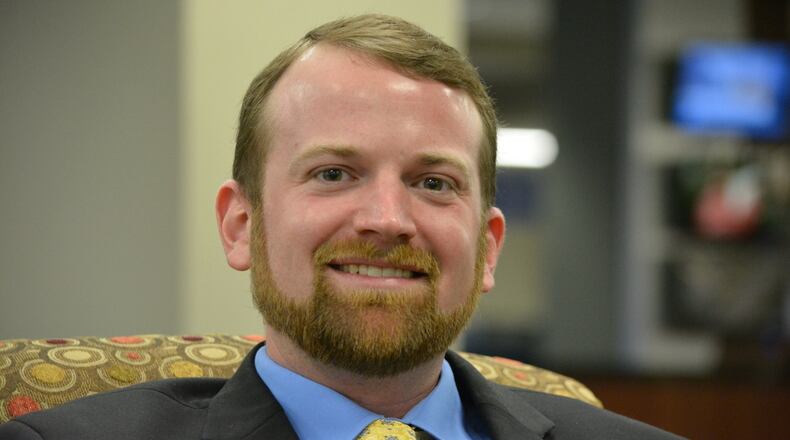MORE: Democrat Theresa Gasper launches run against Congressman Turner
Self-identified as a progressive populist, Milisits says he’s firmly in the “Bernie camp,” a reference to U.S. Sen. Bernie Sanders, I-Vt., who ran in the 2016 Democratic presidential primary. He had reservations about Hillary Clinton, the Democratic nominee, but said he voted for her nonetheless.
“After the primary was over, the candidate that I heard speaking the most about issues that were really directly affecting people was Donald Trump,” said Milisits. “Honestly, there were some things where I was right on board with him.”
“I think that ‘drain the swamp’ — what a mantra,” Milisits said. “And honestly, if we were smart as candidates, we’d be repeating that slogan because the reality is in the same election where people were chanting ‘drain the swamp’ and sent Donald Trump to Washington, they sent long-term congressmen and women back to Washington.”
Milisits’ strategy of running as a progressive populist — and embracing some of the democratic socialist values espoused during Sanders’ run — is an approach opposite that of Gasper, a former Republican with a campaign playbook aimed at winning the votes of moderate Democrats and Republicans frustrated with Congress.
Gasper’s focus on the middle — the “politically homeless,” she called them in a Dayton Daily News interview — is geared toward competing in a district that has returned Turner to Capitol Hill eight times since 2002. Each time, Turner has carried hefty margins in the district. In 2006, his worst performance, he won 58.5 percent of the vote.
But Milisits said he hopes to energize the Democratic base, calling his campaign a “barometer” for where the interests of Democratic voters lie. Unknown is whether the district’s Democratic base — located almost entirely within Montgomery County, where Clinton won nearly 60 percent of the primary vote — identifies with Sanders’ populist message.
Milisits’ own message, he said, is shaped in his own experience. His family lost its home to a bankruptcy stemming from his mother’s medical bills during his senior year at Fairmont High School. Today, he said his work as an AT&T technician takes him into people’s homes, where he said he sees the divide between rich and poor.
“To have a job where you can go from one of the poorest parts of the district where people are living in just abject poverty to the next job you could go to one of the biggest mansions in the district, it really helps to solidify the wealth gap that we have in this country,” he said.
About the Author
